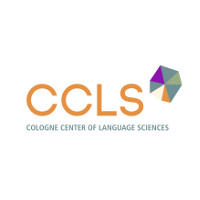MA Linguistics
The MA Linguistics is addressed to international students without sufficient knowledge of German. English skills (at least C1) are required, German skills are not required. German speaking students should enroll in the MA Linguistik, which has all of the same classes and more.
The MA program in Linguistics has been open for international students since the winter term of 2018/19. The program is organized by the CCLS in close cooperation with the participating linguistics departments. International students can choose from eight different profiles (African Linguistics, General Linguistics, English Linguistics, Historical-Comparative Linguistics, Phonetics, Sign Language Linguistics, and Slavic Linguistics) that can be studied without a German certificate. However, if you are interested in learning the local language, you might want to attend the German language courses offered by the University of Cologne: preparatory courses or courses for enrolled students.
Since the MA Linguistics is a new program, this website is still being updated and further information will be supplied here soon.
Please note that the application procedure differs for international students. For more information visit the website for international applications of the Faculty of Arts and Humanities.
Further questions may be directed to your councellors at ma-ling-contactuni-koeln.de.
MA Linguistics
This website portrays the Cologne Single-Subject Master of Arts program in Linguistics. It is aimed at international students who obtained their first degree outside of Germany (those who hold a Bachelor's degree from Germany can apply for the MA Linguistik program). English skills (at least on the Common European Framework reference level C1) are required, German skills are not required. Hence, all courses are offered in English. The program is organized by the CCLS in close cooperation with the participating linguistics departments.
The following sections provide:
- A general overview on the program's curriculum, goals and prerequisites.
- The structure of the program, including a brief description of the modules.
- Information on the application procedure for international students.
General overview
- Linguistics is an empirical subject.
Students of the MA Linguistics program will be instructed in the advantages and disadvantages of the three principal methods of data collection, that is speaker interviews (elicitation, questionnaires), experiments, and corpora of natural language utterances (spontaneous speech, texts). They will both learn to evaluate their relevance for theoretical claims and implement surveys of their own. - Research in Linguistics is hypothesis-driven; and theories and models include non-linguistic aspects of human cognition and social interaction.
Students receive thorough training in the most important theoretical concepts and models as well as their relevance for the understanding of human language, cognition, and society. - The job market is calling on applicants to have two diverging requirements: be specialized and versatile at the same time.
The combination of Profile Modules and Advanced Modules allows to train students in all available fields, providing the extraordinary opportunity to acquire broad and varied methodical and theoretical competences. Hence, the Linguistics program addresses the requirement of prospective employers, both in the academic as well as the non-academic job market.
